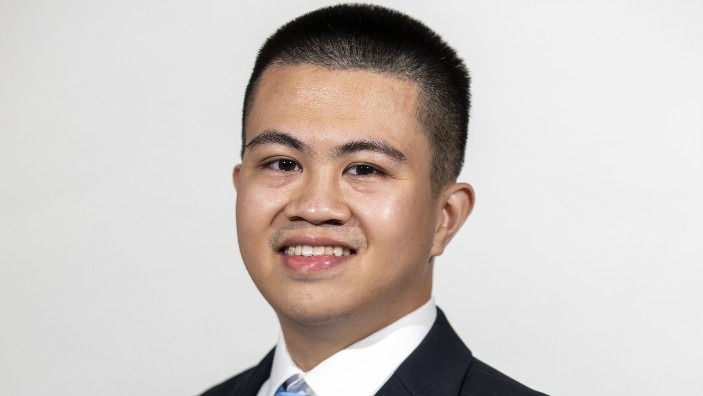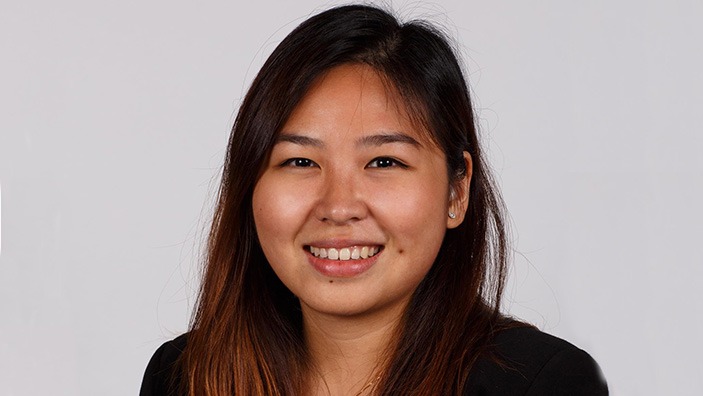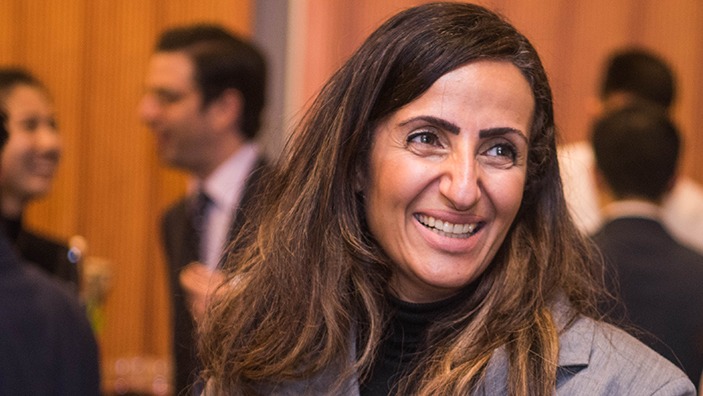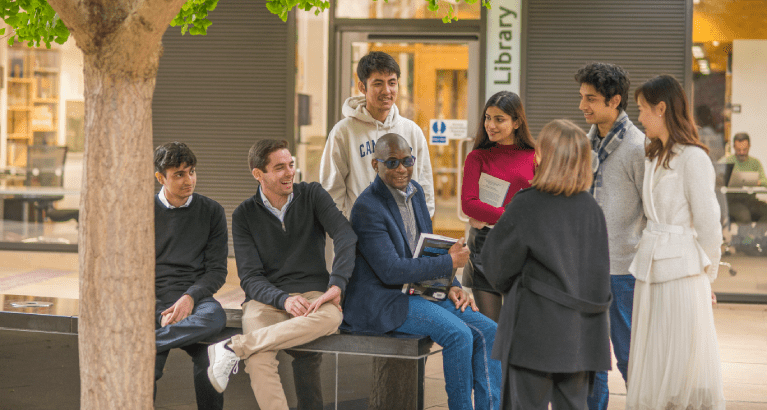From pioneering scientific discoveries to game-changing tech inventions, the University of Cambridge has long been centred on innovation – and Cambridge Judge Business School is no exception.
With AI, blockchain, big data and beyond making an ever bigger-mark in the finance industry, the Cambridge MFin has adapted to keep students up to date with the latest trends. New elective courses including Algorithmic Trading, Quantitative Asset Allocation, Blockchain and Digital Assets and Machine Learning have all been added in recent years, giving students a chance to gain key skills around AI and wider fintech in preparation for a fast-changing industry.
“In today’s job market, having expertise in AI and Machine Learning sets you apart,” says Alejandro Reynoso, External Lecturer in Algorithmic Trading. “As these technologies become integral to the finance sector, employers actively seek candidates with proficiency in them. This gives you a competitive edge when applying for finance-related positions.”
How can the Cambridge MFin help shape a career in fintech?
So how can the Cambridge MFin help forge a career in the fintech field? We spoke to 2 alumni now working in the sector to find out.

Weijie Li, BRAIN Researcher at WorldQuant
MFin class of 2021
What does your current role involve and how did you get into it?
I’m a BRAIN Researcher at WorldQuant, which is a leading quantitative fund. My job has 2 main responsibilities: carrying out Quant research, and training up new Research Consultants. I got the job by participating in WorldQuant’s Global Alphathon, a competition for creating Quant ideas. During the competition, my team ranked third among all the teams in China.
How did the Master of Finance help and what key skills did you gain on the programme?
The MFin helped a lot. To win the competition, I not only needed to have a good understanding of coding, but also a creative mindset to keep generating more financial ideas. For the coding part, the MFin gave us full access to DataCamp (an app that teaches coding and data analytics) for free. This provided me with key practical skills in Quant and Data Science. For the creative part, the MFin equipped me with in-depth financial knowledge that really helped inspire me with generating new ideas.
The courses were also really useful – especially the one on Algorithmic Trading by Alejandro Reynoso, an External Lecturer who works in the industry. I really got a taste of what a Quant Researcher should focus on, which is generating ideas. Having an experienced teacher support your journey along the way and even after the end of the course was really invaluable.
What practical opportunities were there to get experience in machine learning?
For my Group Consulting Project (GCP), I collaborated with the World Bank to apply machine learning techniques to help analyse the cash flow of their investments. That gave me a chance to put the skills I’d gained from DataCamp to use. After the GCP, I got an internship with a hedge fund in London in the Risk and Quant department, which was a great experience.
What tips do you have for current and potential students looking to pursue a career in fintech?
Transitioning to quant or data science in the space of a year might seem like a challenge, but I believe this is definitely achievable with the experience and skills you gain on the MFin. Apply for internships and take part in competitions to boost your experience further and get a foot in the door.
What was the best thing about the MFin more generally?
The MFin is filled with talented people, including fellow students as well as faculty members, and they really inspired me. I forged some life-long friendships, and my year there ended up being the highlight of my life so far.

Beryl Li, Co-Founder of Yield Guild Games
MFin class of 2015
You co-founded Yield Guild Games – can you tell us a bit about the start-up?
Yield Guild Games (YGG) is the largest community in Web3 that offers video games with a non-fungible token (NFT) component, and we focus on building products that upskill communities in emerging markets. I co-founded the start-up in 2020, after founding asset tokenisation platform Capchain X in 2016 (which was acquired by SMKG in 2019).
How did you get into the industry?
I worked in early stage technology investments in Shanghai in 2013. As part of a company called SeedAsia, I was exposed to Bitcoin and software companies leveraging big data. After that, I focused on the application of distributed ledgers in finance – and was the founding team member of Coins.ph, one the of the largest crypto exchanges and wallet providers in the Philippines (acquired by Gojek in 2019).
Why did you decide to pursue the MFin, and how did it help progress your fintech career?
After Coins.ph, I felt the need to step back and think about the many potential uses of blockchain in the finance industry. The MFin programme helped me solidify my foundation in credit, derivatives and alternative markets, and gave me exposure to econometrics, entrepreneurship, private equity and many other areas.
I took classes in Machine Learning and Python run by Cambridge students and alumni, as well as AI modules from the computing department, which were all really useful. There were also sessions from guest lecturers, which led to an opportunity to work with Blackrock London as part of my GCP. This involved back-testing trading algorithms, using skills like Python, and it gave me invaluable experience.
What was the best thing about the MFin more generally?
I was exposed to so many different topics on the MFin, as it’s a really well-rounded programme, and it was great being part of the University of Cambridge, which has such a strong background in the sciences. The city is beautiful and a great environment for contemplating and thinking. My time there gave me the chance to experiment, learn new skills and meet people that led to amazing opportunities.
AI and other areas on the Cambridge Master of Finance
Marwa Hammam, Co-Director and Executive Director of the Master of Finance programme, tells us more about how AI and other areas are embedded on the programme.

“The area of applied finance has seen a lot of development in recent years, and that’s what we’ve looked to address through changes in our curriculum. We now offer a broad range of electives, which includes over 25 courses spanning the entire finance spectrum – many of them covering financial technology and AI, from algorithmic trading to machine learning. In our Quantitative Asset Allocation course, we look at algorithms and how they could be developed to aid portfolio allocation and construction decisions.
We’re constantly in touch with industry through our practitioner connections and senior alumni. We regularly get input from them, which helps us develop our curriculum and stay up to date with key advancements in the industry, addressing the skills that finance practitioners need to develop and hone.
Coding or being conversant in the language of Python has become particularly important, for example. We provide all of our students with access to DataCamp, which is an online self-learning platform focused on coding and data analytics, and we use this as a complement to some of our teaching so as to prepare students for a successful career in this exciting, rapidly-changing field.”
The area of applied finance has seen a lot of development in recent years, and that’s what we’ve looked to address through changes in our curriculum. We now offer a broad range of electives, which includes over 25 courses spanning the entire finance spectrum – many of them covering Financial Technology and AI, from Algorithmic Trading to Machine Learning.
Related articles
Programme news
What to expect at your MFin interview
We know that your Master of Finance (MFin) interview can be a nerve-wracking experience, so in this article we share some advice on how to prepare for your interview.
Programme news
Introducing the scholars of the MFin 2025 class
We spoke to some of our MFin scholarship recipients about why they chose Cambridge, their experience receiving a scholarship, how it is helping them pursue their goals and the impact it will have on their careers.
Programme news
Meet the Cambridge MFin class of 2025
With the academic year now underway, we caught up with our current MFin students to understand why they chose the Cambridge MFin and what they’re hoping to achieve in the months ahead.





